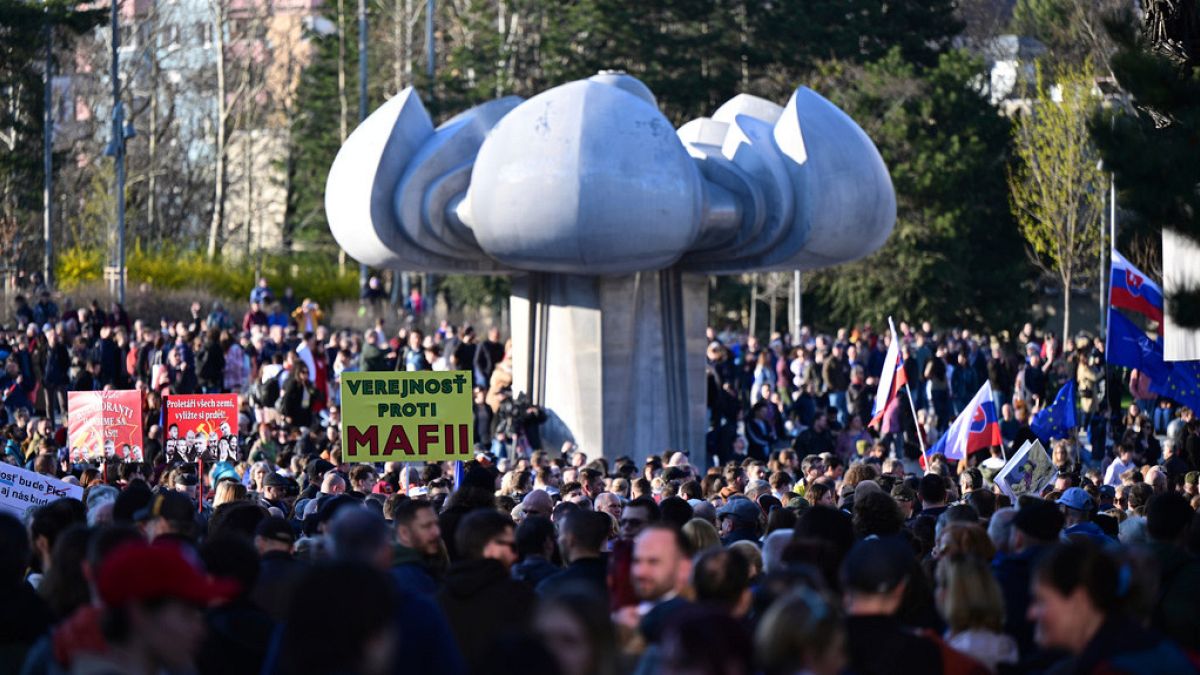Protesters have taken to the streets again in Slovakia’s capital to demonstrate against a draft law targeting NGOs, which has raised concerns of a Russian-style crackdown.
Thousands of people marched through Bratislava on Thursday and gathered outside parliament, chanting “We won’t give up freedom” and “No to the Russian law”.
Rallies also took place in several other cities, as part of a wider months-long protest movement against Prime Minister Robert Fico’s pivot away from the EU and towards Moscow.
The bill proposes that certain NGOs be labelled as lobbyists and face administrative obligations such as disclosures over income and spending, as well as donors’ identities.
However, the draft legislation does not give a clear definition of what constitutes lobbying, according to Via Iuris, an NGO that has analysed the bill.
The NGO said the draft law violates Slovakia’s constitution and European Union rules and is designed to “stigmatise and limit the activities of civic groups”.
“This isn’t transparency — it’s surveillance,” said Eva Kováčechová, a lawyer for Via Iuris.
The bill was tabled by the far-right Slovak National Party (SNS) — one of the three parties in Fico’s coalition government — and has been fast-tracked through parliament. The draft law has the support of the government and is set to be voted on next week.
Fico’s administration has said that the law is meant to increase transparency around the financing and functioning of civic groups. In videos shared on his Facebook page this week, Fico said: “Stop scaring Slovaks with illusions, we do not accept any Russian laws.”
Russia first introduced its foreign agents law in 2012, and has increasingly widened its scope to crack down on dissent — especially since its full-scale invasion of Ukraine in 2022. The legislation requires organisations and individuals involved in vaguely defined political activity and who receive assistance from abroad to register as “foreign agents”.
Georgia passed a similar law last year, sparking massive protests, while Hungary passed such legislation in 2017, but repealed it in 2021 after an EU court ruled that it was illegal.
Further protests are scheduled for Friday across Slovakia, which has seen regular rallies since late December after Fico met Russian President Vladimir Putin in Moscow.
Following that visit, Fico raised the possibility of Slovakia leaving the EU and NATO, which caused concern among large swathes of Slovak society that are staunchly pro-Western.
Fico’s government has been repeatedly accused by civil society groups and the opposition of attacking democratic values and institutions, justice and the rule of law.
Several political analysts and activists told Euronews last month that they believed Fico was trying to mobilise pro-Russian voters to cement his grip on power and marginalise the fragmented opposition in an attempt to govern the country without proper oversight.

